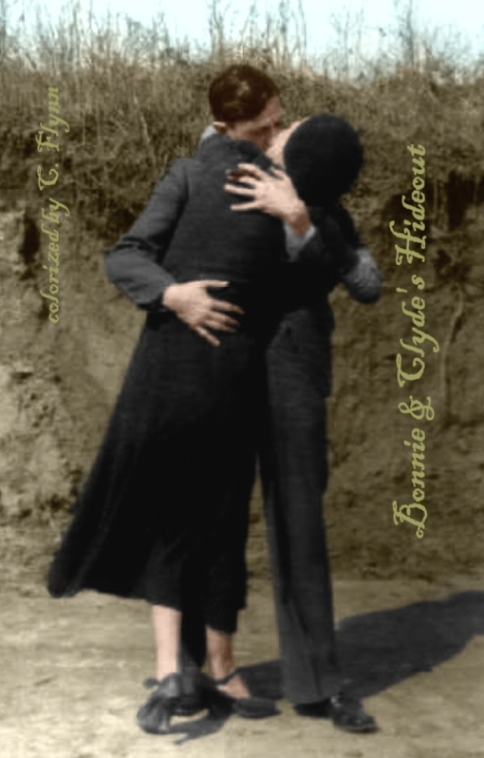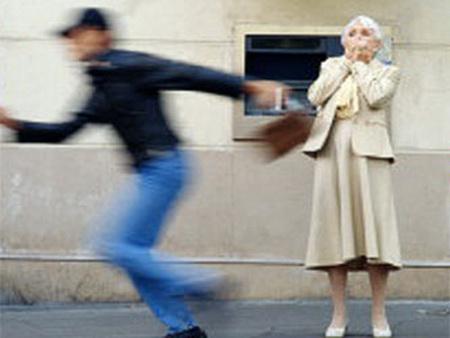January is a time for new inspiration, and for many of us, inspiration came from Sir Arthur Conan Doyle. Many of us read his Sherlock Holmes stories and decided to keep reading mysteries. Some of us tried writing a mystery ourselves. Or maybe, as really happened, someone digs a forty-foot tunnel into a bank vault.
And the plan worked.
Mostly.
The Holmes outing that inspired the crime is, of course, "The Red-Headed League," up there with my favorites. The story has nothing ingenious about it, by such standards, except the Holmes stories usually hide their humor more. This one nails a mystery that--in my opinion--only works as comedy.In 1971, a British criminal gang tried the plot in real life. They targeted Lloyds Bank, no less, the renowned securer of London society lockboxes.
The bank sits at 185 Baker Street.
Now, everyone knew London's wealthy kept serious loot in Lloyds basement vault. No heist team had tried the job for a simple reason: The idea was pure insanity. Lloyds was a high-tech fortress, with trembler alarms and feet of reinforced concrete protecting the vault. Getting in and out couldn't be done.
Enter Anthony Gavin, the real-life genius if not aristocrat. Gavin was Army-trained and connected in the London underworld. And Gavin was properly inspired.
Nobody was busting in the front way. But somebody equipped and disciplined could tunnel in, Conan Doyle-style. And in May 1971, two doors from Lloyd's at Number 189, the leather goods shop Le Sac had just gone under. Blueprints said its basement sat on the same level as the vault.
The game was afoot. Gavin worked through an associate Benjamin Wolfe to secure the lease. Wolfe's job was financing and cover. He would keep Le Sac open so that Gavin's crew could come and go as renovators. Not open personally, mind you. For plausible deniability, Wolfe stayed clear of Le Sac.
The exact size of the crew isn't known. Gavin had a security systems expert. He had a lookout, a demolitions guy, a tunnel man who could navigate tight spaces. And crucially, he had an insider, Reg Tucker, a friend with no criminal record.Tucker fashioned himself into a Man About Marylebone and in December 1970 deposited £500 at Lloyds. In February 1971, he returned to rent a safety deposit box in the basement vault. Over six months, Tucker revisited the vault and mapped its layout and dimensions using an umbrella as a yardstick. He walked Baker Street between Le Sac and Lloyds until the crew had precise distance and direction for tunneling. Forty feet, no more, no less. It didn't pay to pop up at the fried chicken joint in between.
The news got better. Baker Street was torn up for repairs. The security expert checked around and learned the utility work set off so many false alarms that the tremblers had been shut off altogether.
The tunneling started in late August and went on for two weekends. They dug after hours only to lower the risk of being heard. And it wasn't loose dirt they dug through. This was decades and decades worth of old London foundations. A cave-in was one wrong shovel or loose brick away.
Foot after foot they dug, no ventilation, no calling for help. And nights or not, they were making a lot of noise picking away and clearing tons of debris by bags and a pulley as they moved deeper. The chicken place staff eventually came banging on Le Sac's door to complain. Gavin's crew didn't hear the knocking at first because they were busy mining directly below the chicken place.
By Friday, September 10, the crew was ready. They had cut forty feet and loaded eight tons of rubble into Le Sac's basement. They'd constructed a chamber 7x4x5 feet where they loaded a 100-ton hydraulic jack onto railroad ties. The vault would time-lock at close of business, as the manager had bragged to Tucker. No one, not even the manager, could open it until Monday morning. Gavin's lookout confirmed over the walkie that the branch had emptied. The crew had all weekend--if they could crack through the reinforced concrete.
On Saturday, the crew gave it a go. As happens in a heist, the plan immediately frayed. Their staging chamber sat above wet earth from an underground spring. The hydraulic jack pushed the floor down rather than the vault concrete up.
Gavin was ready for contingencies. Next, and this is not embellishment, they took a thermal lance to the vault floor. That's right, they shot molten slag upward in a tiny space filling with noxious fumes. And for naught. The reinforced concrete held.It was time for old-fashioned methods. The crew drilled chunks out of the concrete and stuck gelignite inside. A detonator did the rest.
Explosives. In the makeshift tunnel. But the crew's engineering was up to the task. As for noise, the lookout confirmed that Baker Street didn't seem to notice a blast under their feet. Which left only basic physics in the way. Bank vaults are airtight. Gavin and his crew pried upward into a thick brume of smoke and dust, too much for starting on the deposit boxes. The crew argued over their walkies about whether and how to change the plan.
Which was a problem Gavin hadn't accounted for. One mile away, a ham radio enthusiast was recording their transmissions.
The ham radio guy was Robert Rowlands, of Wimpole Street. He'd been trying to catch Radio Luxembourg but instead had tuned into the heist. He listened on and even reported a suspected burglary--somewhere--to his local precinct. The cops advised him to record what he was hearing if he wanted anyone to believe him. So Rowlands did. On his home cassette recorder, he caught Gavin's crew wrangling about pressing on or retreating before being overcome by fumes.
By 2am Sunday, Rowlands phoned in a second report. This time, he called Scotland Yard. The Flying Squad drove to Rowlands' flat and listened with him as the crew chattered their progress reports. Eventually, the crew switched channels, but not until the evidence had mounted.Scotland Yard knew a bank job was happening, but they didn't know where. So they put teams on the streets and canvassed banks in an 8-mile radius of Wimpole Street--all 750 branches.
One of those banks was Lloyds.
There wasn't any sign of foul play outside Lloyds, but no one was taking chances. The cops and bank manager went into the basement and listened inside the sealed vault, likely while the crew was inside thinking each breath sounded like thunder. But after a good listen, the police called Lloyds all clear.
Which it wasn't, as was obvious when Lloyds opened Monday morning. The crew had broken into 268 deposit boxes, a quarter of the vault count. A note scrawled in paint challenged Sherlock to solve the case. Also obvious was the hole in the vault floor. That led the cops to Le Sac and the discarded equipment, which quickly led them to Benjamin Wolfe. He had signed the lease under his real name.
Shocked. Wolfe was shocked, shocked, to learn that a crew had used his basement for thievery. Yes, he'd let a crew use the property, but he'd understood it to be for legitimate storage.
Needless to say, Scotland Yard wasn't buying Wolfe's story. They put him under surveillance and made note of his contacts and movements. Wolfe made repeated contacts with Anthony Gavin, whose voice on the police recordings sounded an awful lot like the crew leader from Rowlands' tapes. Eventually, the police tracked Wolfe to a pay-off. That was that. Gavin, Wolfe, Tucker, and a few others got rounded up. But some of the alleged crew had left England, and possible others have never been identified.
Also needless to say, this was a public sensation. Headlines were written. Fingers were pointed. The job had been ambitious, the crew had gotten away, the police sported a black eye, and rumors sprouted over what other incriminating evidence might've been taken (the 2008 film The Bank Job indulges the conspiracy theories). More than a few Lloyds customers refused to disclose their contents stolen.Only £231,000 was ever recovered. Some estimates speculate the haul at £3,000,000. In today's money, that is £50,000,000 ($64,000,000), plenty to disappear or pay off bent cops or set aside for retirement. Gavin and Tucker did twelve years. Wolfe did eight.
And that is London 1971 and "The Red-Headed League" come to life. Brilliant criminals, bold plot, and inept police who get their man eventually. And even its sublime ridiculousness, in the form of fake identities, simple mistakes, and irate fry cooks. All that was missing was a great detective.
Good thing, though, that no real-life Holmes waited there to nab the crew. Gelignite packs a punch.
* * *
The whole Great Heists series is worth a watch for caper or true crime buffs.























